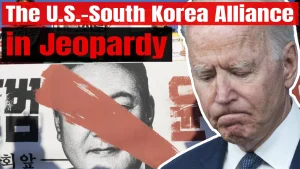Only China’s Former Premier Zhou Enlai Can Save Europe
Editor’s Note:
On June 28, 2024, the Conference Marking the 70th Anniversary of the Five Principles of Peaceful Coexistence was held in Beijing. Prominent Chinese scholar Zhang Weiwei attended the conference invited by the Ministry of Foreign Affairs. Zhang delivered a speech at the forum In the afternoon, the following is an edited excerpt of his spech.
 On June 28, 2024, Prominent Chinese scholar Zhang Weiwei attended the 70th Anniversary of the Five Principles of Peaceful Coexistence in Beijing.
On June 28, 2024, Prominent Chinese scholar Zhang Weiwei attended the 70th Anniversary of the Five Principles of Peaceful Coexistence in Beijing.
We are here today to solemnly commemorate the 70th anniversary of the Five Principles of Peaceful Coexistence. These principles, which originated from Asian civilizations, have now become important norms guiding contemporary international relations. Initially proposed by Chinese Premier Zhou Enlai, these principles were formally articulated in the Agreement on Trade and Intercourse between China and India, signed on April 29, 1954. In June of the same year, Zhou Enlai, together with Indian Prime Minister Nehru and Burmese Prime Minister U Nu, issued a joint statement advocating the Five Principles as guiding principles for general international relations.
Examining the cultural background that gave rise to the Five Principles, they first originated from the great civilizations of China and India, particularly concepts in Chinese civilization such as “harmony is most precious”, “unity through diversity”, and “prudence in warfare”, along with the Indian civilization’s “Panchsheel” principles, where “Panch” means “five” and “sheel” refers to principles or norms, deriving from the “Five Precepts” in Buddhist scriptures. Political leaders from China and India creatively transformed traditional ideas and jointly proposed the Five Principles of Peaceful Coexistence, which first received enthusiastic responses from many Global South countries at the Bandung Conference and began being put into practice.
Last year’s Munich Security Conference released a 2024 Security Report with the theme of “lose-lose,” indicating that the optimism about peaceful development that characterized the post-Cold War era has now dissipated.
In my view, this report underscores Europe’s growing anxieties about losing the stability and prosperity it once took for granted. Meanwhile, across Asia – particularly in China and Southeast Asia – lies a vastly larger population of over two billion people striving for progress. The population is three times that of Europe. For decades, not merely years, this region has achieved win-win cooperation through mutual adherence to the “Five Principles of Peaceful Coexistence.”
By contrast, Europe’s preference for fractious blocs and meddling in foreign democracies can only breed conflict and setbacks for all. As Josep Borrell, European Union foreign policy chief recently wrote, “in Latin America, in Africa, in the Middle East and North Africa and, of course, in Asia almosteveryone think now that there are credible alternatives to the West, not only economically, butalso technologically, militarily and ideologically.”
In this new landscape, the Five Principles of Peaceful Coexistence, non-interference, mutual respect and shared benefit championed by China and ASEAN offer a prudent path forward for stability and shared prosperity. With patience and good faith, our example in Asia could guide other regions toward cooperation over confrontation.
Over the past decade, China’s implementation of the Belt and Road Initiative has achieved monumental success by building upon the bedrock Five Principles of Peaceful Coexistence and supplementing them with the concepts of “discussing together, building together, and benefiting together”.
Culturally, “discussing together” honors China’s timeless value of impartial deliberation, “building together” reflects our abiding faith in pragmatic practice that strengthen society, and “benefiting together” echoes our peoples’ millennia-old ethos of facing hardship and prosperity side by side. These principles emanate from a distinctly Chinese worldview “unite and prosper”, contrasting with a zero-sum Western preference for “divide and rule.”
As a result, China offers the world an alternative vision of international relations, we recognize a Community with a Shared Future for Mankind, rather than the Western concept of “either being at the table or on the menu.”
 Dispite Macron preventing far-right party taking over France, whatever political party comes to power cannot solve the fundamental problems of France.
Dispite Macron preventing far-right party taking over France, whatever political party comes to power cannot solve the fundamental problems of France.
The differences between these two ideas also represent two different choices about the future destiny of the world: one is beneficial to the vast majority of people in the world and to the bright future of peaceful development and win-win cooperation among all countries in the world; The other is a unipolar world subordinate to the interests of a few countries and big capital, continues lead to the dark fate of turmoil, war and destruction. Countries in the Global South must unite and strive to achieve a bright future for the world.



